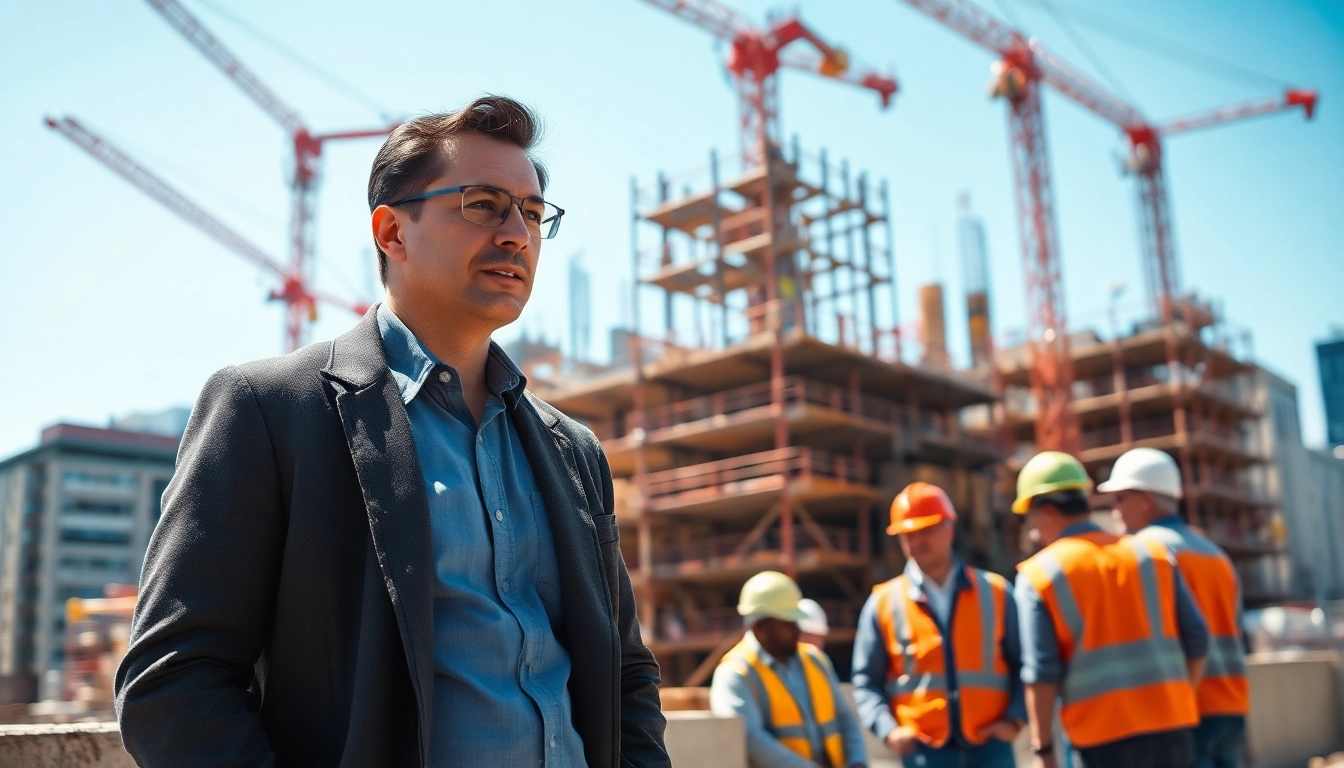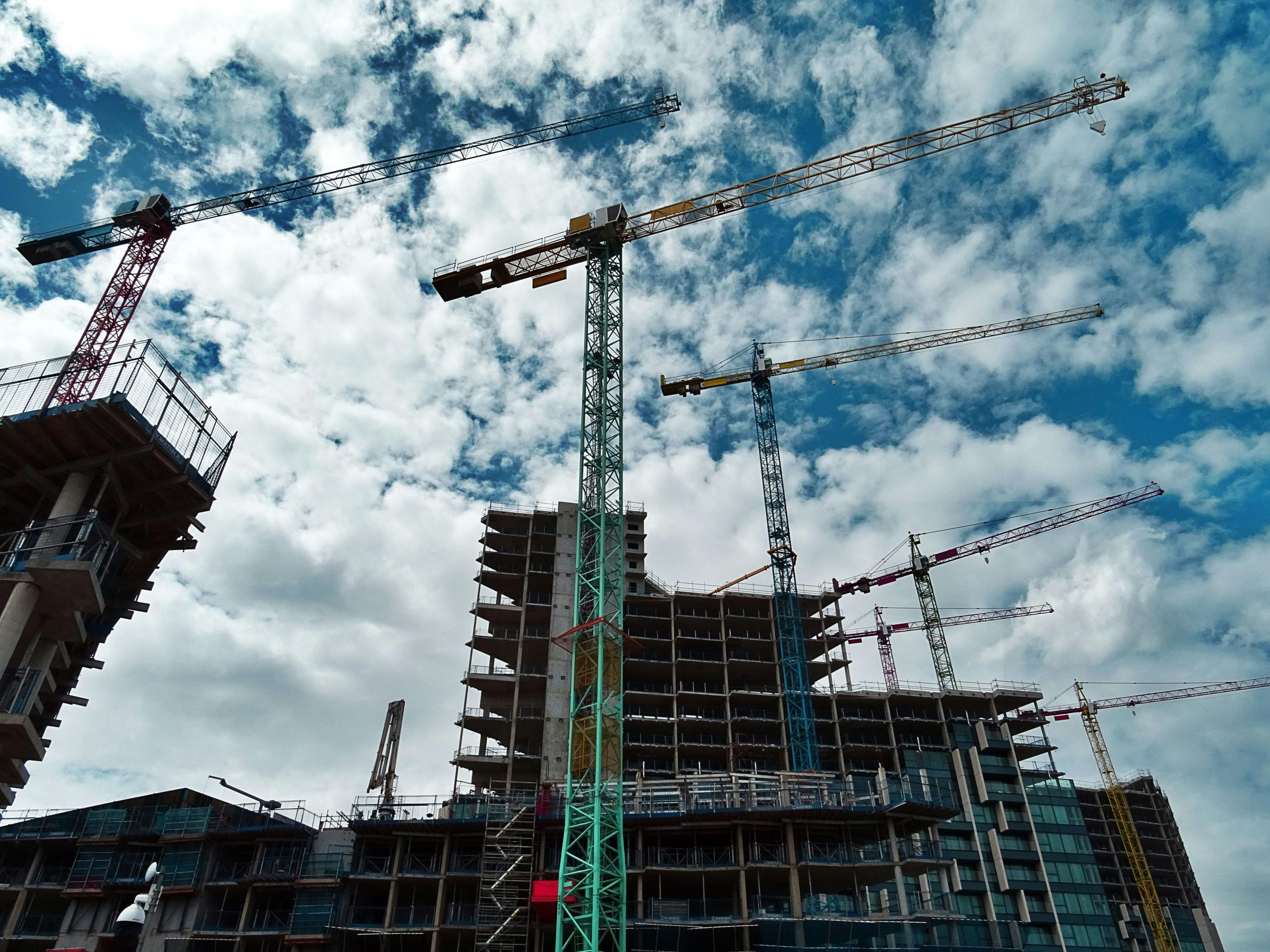Understanding the Role of New York City Construction Manager
The role of a New York City Construction Manager is integral to ensuring the success of construction projects in one of the most challenging urban environments in the world. This position combines technical, managerial, and leadership skills to guide a project from its initial conception to its final completion. In a city known for its iconic skyline and intricate infrastructure, construction managers must navigate a landscape filled with endless complexities, regulations, and stakeholder interests.
Core Responsibilities of a New York City Construction Manager
The responsibilities of a New York City Construction Manager encompass a wide range of tasks:
- Project Planning: Developing cost estimates, timelines, and project scopes while coordinating with architects and engineers is fundamental.
- Resource Management: Efficiently allocating resources, including labor, materials, and equipment, is crucial to ensure the project stays within budget and schedule.
- Risk Management: Identifying potential risks early, assessing their impact, and implementing mitigation strategies are vital for minimizing disruptions.
- Quality Control: Ensuring that all work performed meets quality standards and complies with local regulations is a key responsibility.
- Communication: Serving as a liaison between stakeholders, including clients, subcontractors, and local authorities, to ensure everyone is aligned on the project’s progress and challenges.
Essential Skills for Effective Construction Management
A successful New York City Construction Manager needs a diverse skill set, including:
- Technical Knowledge: Understanding construction processes, materials, and safety regulations is essential.
- Leadership: Managing and motivating a team while maintaining an environment of cooperation and accountability.
- Negotiation Skills: Being able to negotiate contracts and resolve conflicts effectively can prevent misunderstandings and additional costs.
- Problem-Solving: An ability to think critically and devise solutions in high-pressure situations is indispensable.
- Financial Acumen: Understanding budgeting and cost control to manage project finances effectively.
Challenges Faced by New York City Construction Managers
The position of a New York City Construction Manager comes with unique challenges, such as:
- Complex Regulations: New York City’s construction industry is heavily regulated, requiring managers to stay informed about local laws and zoning ordinances.
- Site Constraints: Many projects occur in densely populated areas, leading to logistical challenges that must be meticulously planned.
- Weather Conditions: Seasonal changes can significantly impact construction schedules, necessitating contingency planning.
- Stakeholder Engagement: Balancing the needs and expectations of various stakeholders can complicate decision-making processes.
Education and Training Pathways for New York City Construction Managers
To embark on a career as a New York City Construction Manager, a robust educational foundation is essential.
Recommended Degrees and Certifications
Although some may enter the field with experience alone, pursuing formal education can enhance career prospects:
- Bachelor’s Degree: Degrees in construction management, civil engineering, or architecture provide essential technical knowledge.
- Certifications: Credentials such as Certified Construction Manager (CCM) or Project Management Professional (PMP) can complement a degree and demonstrate expertise.
- Master’s Programs: A Master’s in Construction Management or related fields can provide advanced knowledge and leadership skills for career advancement.
Workshops and Seminars for Skill Enhancement
Continuous learning via workshops and seminars helps construction managers stay updated on industry trends and innovations:
- Industry Conferences: Events like the NYC Build Expo provide networking opportunities and insights into emerging technologies.
- Technical Workshops: These workshops can cover topics such as new construction techniques, software tools for project management, and safety regulations.
- Online Courses: Many platforms offer flexible learning options on subjects like green building practices or advanced project management techniques.
The Importance of Continuous Professional Development
As with any profession, ongoing education is crucial in construction management:
- Keeping Up with Technology: Emerging tools like Building Information Modeling (BIM) and advanced scheduling software are becoming industry standards.
- Adapting to Changes: The construction industry is dynamic; continuous learning helps professionals adapt to changing regulations and innovative practices.
Best Practices for New York City Construction Management
Implementing best practices can elevate the standard of project management in construction:
Effective Communication Strategies
Enhancing communication fosters collaboration and transparency among all project participants:
- Regular Meetings: Holding weekly briefings with all stakeholders ensures everyone is updated on progress and challenges.
- Utilizing Technology: Tools such as project management software can streamline communication and provide real-time updates to teams.
- Fostering a Collaborative Culture: Encourage an environment where team members feel comfortable sharing feedback and ideas.
Project Planning and Resource Management
Thorough planning can mitigate risks and enhance efficiency:
- Detailed Work Breakdown Structure: This helps outline tasks and responsibilities clearly, making management easier.
- Resource Allocation: Regularly reviewing resource needs and availability to avoid shortages and downtime is critical.
- Time Management: Building a realistic timeline with built-in buffers helps navigate unexpected delays.
Applying Technology in Construction Management
Leveraging technology can optimize various aspects of construction management:
- Construction Management Software: Employing software like Procore or Buildertrend can help manage schedules, budgets, and communication effectively.
- Drones and 3D Modeling: Using drones for site surveys and 3D models for visualizing projects can streamline planning and execution.
- Mobile Apps: Mobile applications can aid in on-site communication, allowing for quicker decision-making and updates.
Job Market Overview for New York City Construction Managers
The job market for New York City Construction Managers is robust and evolving:
Current Trends in Construction Management Jobs
Several trends are influencing the demand for construction managers in NYC:
- Increased Urban Development: As the city continues to grow, the need for skilled construction professionals is on the rise.
- Focus on Sustainability: There is a growing emphasis on eco-friendly construction practices, creating demand for managers with green building expertise.
- Technological Integration: Projects that integrate advanced technologies are becoming more common, requiring knowledgeable managers who are tech-savvy.
Salary Expectations for New York City Construction Managers
Compensation for New York City Construction Managers can vary significantly based on experience, education, and the complexity of projects:
- Entry-Level Positions: Newly graduated professionals in entry-level roles can expect salaries ranging from moderate to competitive.
- Mid-Level Managers: Those with several years of experience might see a substantial increase in salary, often reflecting their enhanced responsibilities.
- Senior Management: Highly experienced professionals overseeing large projects can command top-tier salaries, often complemented by bonuses and benefits.
Networking Opportunities and Professional Organizations
Building a professional network is invaluable in construction management:
- Professional Associations: Joining organizations like the Construction Management Association of America (CMAA) provides access to resources, certifications, and networking.
- Industry Events: Attending trade shows and conferences offers opportunities to connect with peers and learn about industry advancements.
- Local Networking Groups: Engaging with local chapters of industry groups or informal meetups allows for building relationships within the community.
Future of Construction Management in New York City
The future landscape for New York City Construction Managers is poised for transformation:
Emerging Technologies Impacting the Industry
Technological advancements are set to redefine construction practices:
- Artificial Intelligence: AI can enhance project planning, resource management, and risk assessment, leading to more efficient processes.
- Smart Construction: The integration of Internet of Things (IoT) devices can provide real-time data on site conditions, improving decision-making.
- Prefabrication Techniques: Off-site construction methods can significantly reduce on-site labor and time, changing traditional construction timelines.
Environmental Considerations in Urban Construction
Sustainable practices are becoming a critical focus in construction:
- Green Building Certifications: Achieving certifications such as LEED (Leadership in Energy and Environmental Design) can be essential for new projects.
- Waste Reduction: Implementing strategies for reducing waste during construction aligns with environmental goals and can lower costs.
- Energy Efficiency: Incorporating energy-efficient systems and sustainable materials are increasingly prioritized in new constructions.
Building Resilience in Urban Development
The ability to adapt to challenges such as climate change is vital for future developments:
- Disaster Preparedness: Designing buildings and infrastructure that can withstand natural disasters should be a key focus for construction managers.
- Community Engagement: Involving local communities in planning processes ensures developments meet public needs and enhance urban resilience.
- Innovative Materials: Researching and utilizing new materials that offer durability and sustainability will shape the future construction landscape.















Leave a Reply